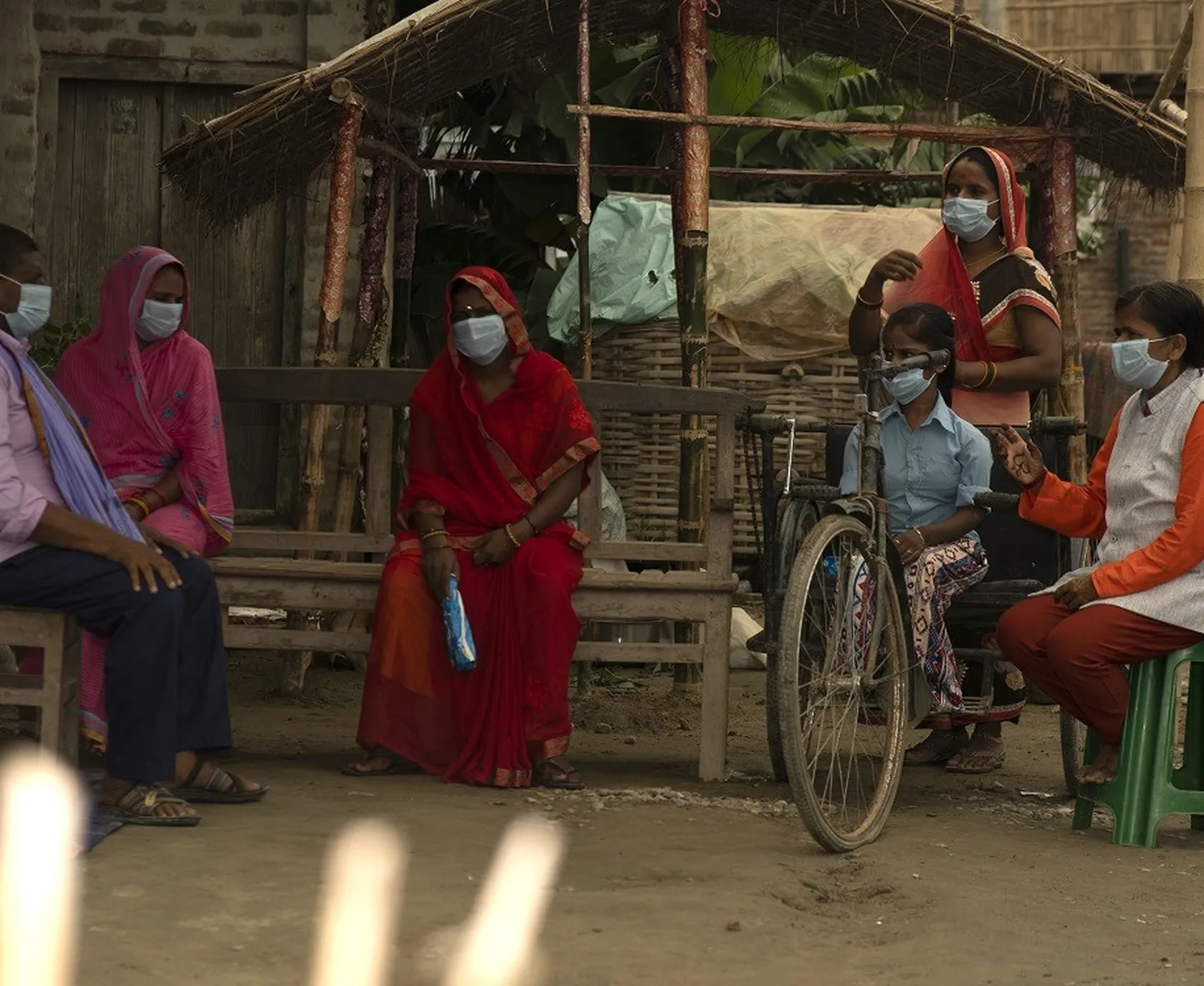
Gender equality and social inclusion
Inequalities drive poverty and vulnerability. GESI-responsive programming is core in our work on systems change.
When it comes to equality, change is happening, but progress is slow. The world is not on track to achieve gender equality by 2030 as set out in SDG5.
We want to make value chains and markets more responsive to the needs of women, youth, and marginalised people, and for basic services to deliver universal access, as a right. Only then will we be able to contribute to an inclusive enabling environment in which individuals, households, communities, and businesses can thrive and reach the 2030 targets.
Recognition is important to SNV. We recognise the role of women as actors across the agri-food, energy, and water sectors. Women agricultural workers in developing countries are over-represented in unpaid and low-paid seasonal or part-time jobs.[1]
Women in developing countries are impacted by energy poverty in greater numbers than men, and they do not have the same opportunities as men to take advantage of emerging opportunities that can help deliver energy access for marginalised populations.[2]
Poor and marginalised groups are impacted most by water scarcity crisis. For many women and girls, water scarcity means more laborious, time-consuming water collection, putting them at increased risk of attack and often precluding them from education or work.[3]
GESI-responsive programming
Embracing GESI is critical to making systems, structures, and markets fairer and more inclusive. And we’re not simply talking about improving income. We’re focused on enabling individual agency, creating new economic opportunities which challenge traditional roles, and creating platforms for people's voice.
Whether that’s through leadership training at an institutional level, improving access to finance in the community or delivering human-centred social and behaviour change communication, all of our work is conducted in line with the Minimum Standards for Mainstreaming Gender Equality.
In one example, our focus on enterprise development, social transformation, and policy advocacy interventions was central to the Enhancing Opportunities for Women’s Enterprises programme. We reached nearly 11,500 women in Kenya, 85% of whom saw an increase in their income, and in Vietnam, participating women increased their income by 8.5%. Both in Vietnam and Kenya, project participation also resulted in improved and more equitable household relations, including increased involvement of men in household tasks and an increase in women’s control over income and access to credit.
Meanwhile, in the Beyond the Finish Line project in Bhutan, we conducted transformative leadership training with the ambition to increase investment in women’s leadership skills, directly challenge the status quo, increase women’s voice in the WASH sector, and build momentum towards greater equality. 80% of those trained and mentored were women.
Prioritising inclusion
In order to see true transformation, an intersectional GESI approach is essential to look at power, relationships, and social norms.
We want to be inclusive and engage empowering processes for all who have different needs, assets, and opportunities, and inclusion is an integral part of our systems change approach.
Our strategic commitments
When it comes to setting our GESI conceptual framework to 2030, our strategy is fivefold:
Equality and inclusion – our interventions are inclusive and gender responsive, and transformative where possible.
Working with and for young people – we focus on generating opportunities and strengthening the agency of young people.
Fragile contexts – we recognise that those facing the greatest challenges of extreme poverty are increasingly living in fragile contexts. GESI dynamics are essential to this work.
Working in partnership – we always act in solidarity and partnership with communities, organisations, and institutions driving systemic, inclusive, and sustainable transformation.
Amplifying voices – we amplify the voices of under-represented groups to influence and shape equitable outcomes.
By 2030, SNV aims to generate evidence and pathways to implement gender-transformative approaches at scale.
Notes
[1] Rapsomanikis, 2015
[2] ENERGIA, 2019
Learn more about our work in equity and inclusion
In a world shaped by compounding crises and widening inequality, equity and inclusion are no longer optional—they are essential. These principles are not just about representation or access; they are the foundation of fair, resilient, and sustainable development.
Want to collaborate with us?
Contact us to collaborate and learn more about activities around the world.



